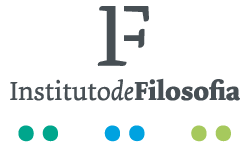Principal investigator: Sofia Miguens
In this project we aim at exploring prospects for a 21st century post-analytic and post-phenomenological philosophy of thought, mind and language. The project involves a strong component of history of 20th century philosophy, in both traditions, a working out of genealogies, and a critique of the caricatures of analytic and continental philosophy as being, respectively, anti-metaphysical and scientificist and anti-scientificist. We will look at work of authors on both sides who have been proposing theoretically challenging readings of the history of 20th century philosophy, namely those of the Harvard based B. Dreben school (Floyd & Shieh 2001), and also J. Benoît (Benoit 2005). Work on the history of philosophy around B. Dreben is emblematic of a rising of historic consciousness within the analytic tradition, which is generally seen as anhistorical by its adversaries. B. Dreben has also claimed that the analytic tradition ended with Wittgenstein and Quine, and part of our intention in this project is to assess that claim. The project will focus on specific issues which make comparisons possible, such the nature (and limits) of intentionality, starting wih the way it was approached in the times of Frege/Husserl, the status of perception versus language in the analysis of meaning, psychology/philosophy relations, reasons for rejecting psychologism and the realism/antirealism debate. We will also try to formulate and assess accusations of idealism to analytic linguistic philosophy. Throughout the project, we will pay especial attention to those philosophers such as L. Wittgenstein, J. McDowell and H. Putnam who already exemplify in their writings some of the convergences we are looking for.
Institute of Philosophy internal project, in collaboration with the research group Phenomenology.
